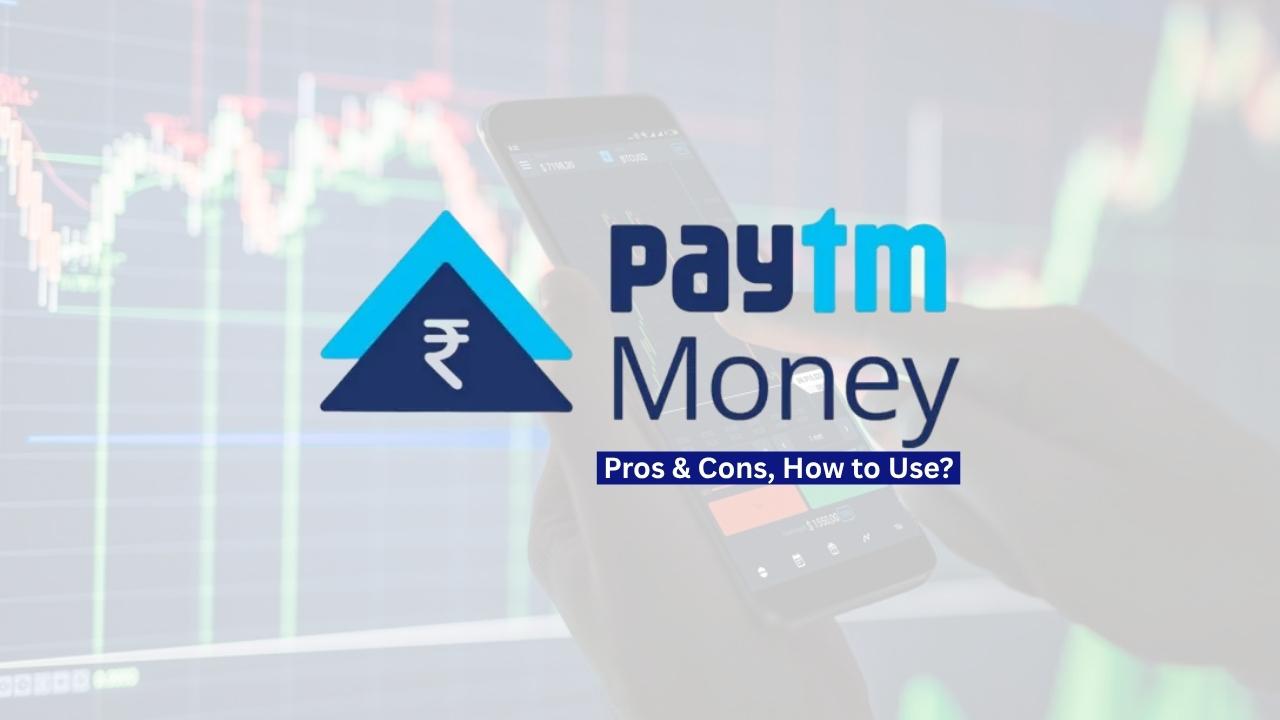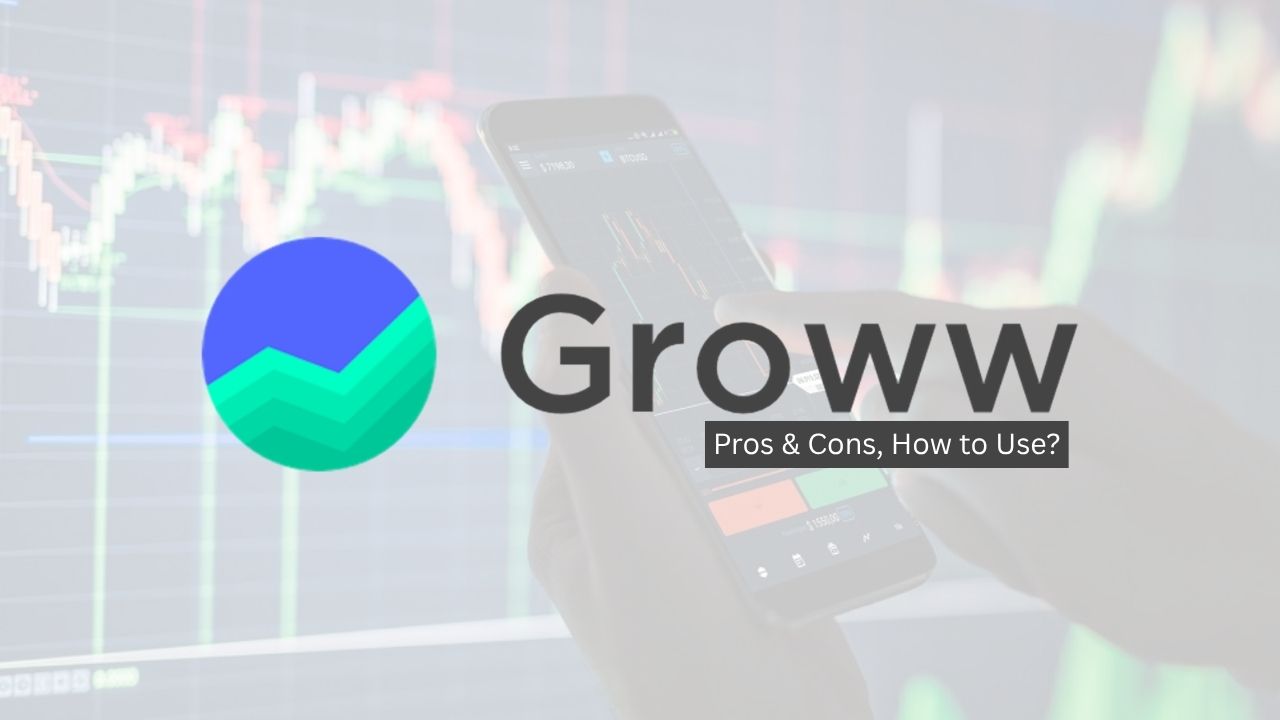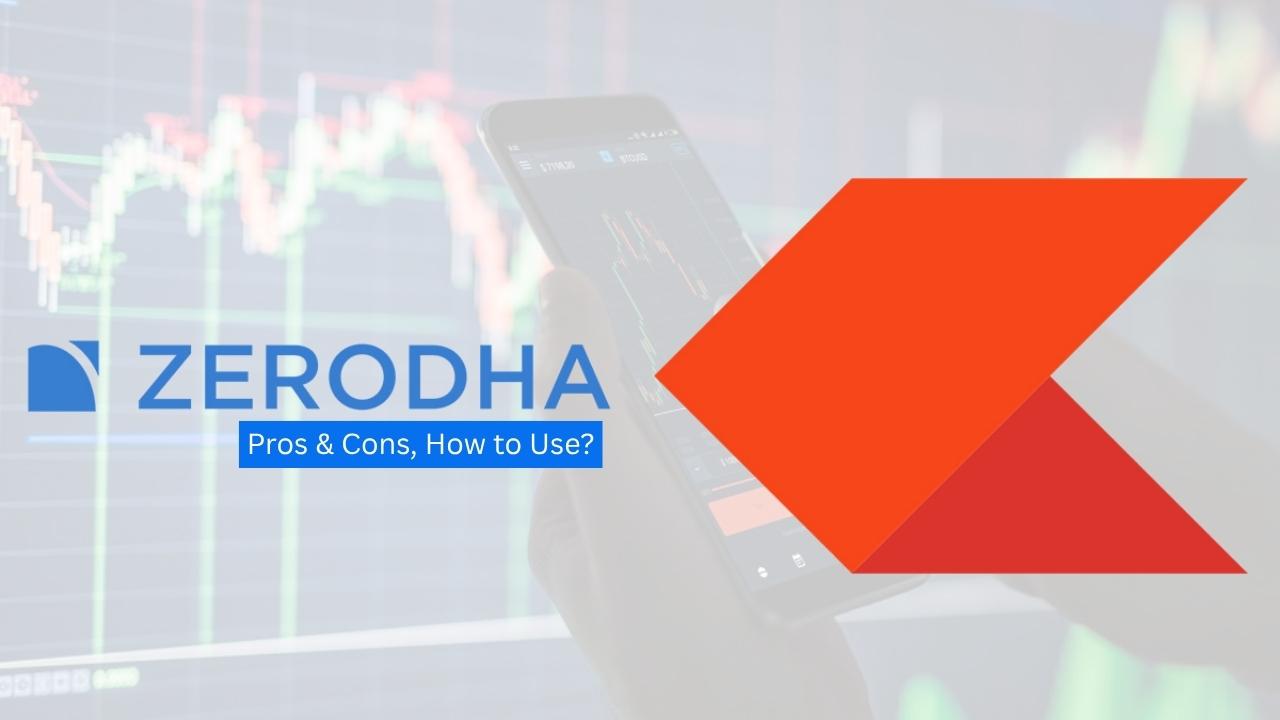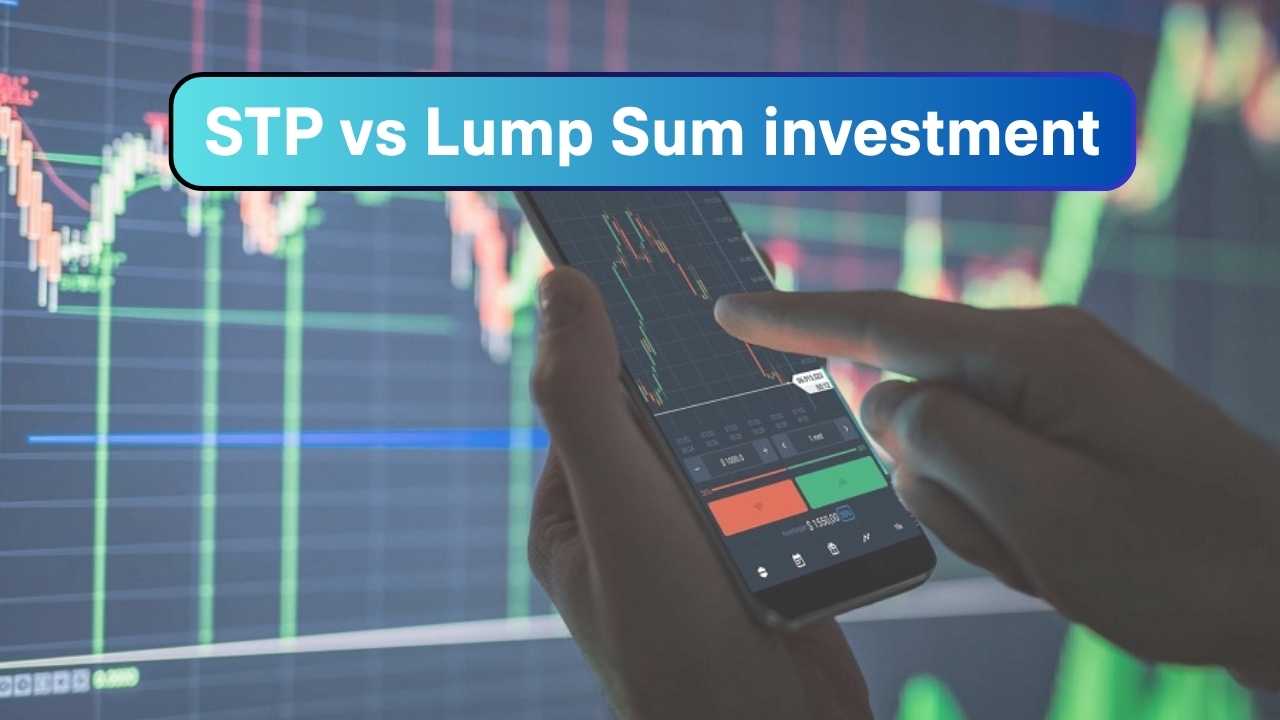Paytm Money is a popular online investing platform in India. It allows one to invest in stocks, mutual funds, IPOs, and F&O (futures & options) trading. Paytm Money aims to keep investing straightforward and largely paperless. Most users prefer it since it has a user-friendly mobile app and it attempts to keep costs low for simple investing, such as direct mutual funds.
This post will explain the main features, what’s good and not-so-good, how much it usually costs, and a simple step-by-step guide to start using Paytm Money. For exact, up-to-date charges or offers, always check Paytm Money’s official pages.
Paytm Money: Features, Pros & Cons, Charges, How to use Paytm Money?
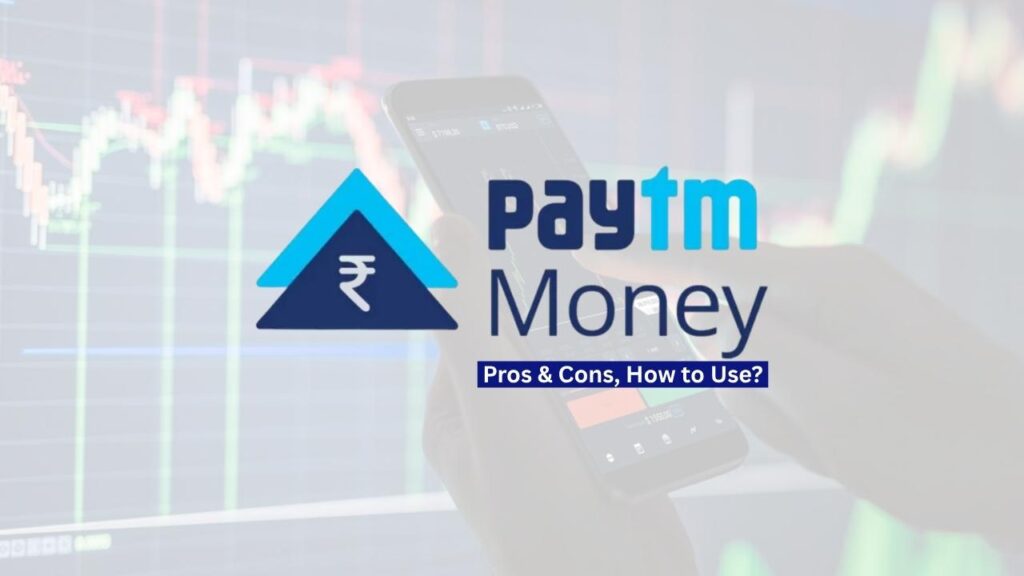
Features of Paytm Money
Paytm Money offers many tools for investors and traders. You can open a demat and trading account online without much paperwork. The app features a simple home screen, watchlists, live market information, charts, and order types to help you buy or sell with ease. For mutual fund investments, Paytm Money offers direct mutual funds with zero commission, which could save you a lot of money in the long term.
The platform also offers Stock SIPs (small monthly investments in stocks), investments in IPOs, and market research articles and tips within the app. The app was recently updated to include new features such as smarter search, one-tap functions, and order tools like OCO/GTT to assist in risk management. The features make Paytm Money helpful for new traders who prefer simplicity and for experienced traders who prefer more control.
Pros & Cons of Paytm Money
Every broker has good points and trade-offs.
Pros: Paytm Money is convenient to use with a nice mobile app and a quick online account opening experience. It provides direct mutual funds (no mutual fund commission), which is beneficial for long-term investors since it saves costs. The firm continually adds features and enhancements, e.g., automated SIP payment and improved UI, which enables users to do more within the app.
Cons: As a popular platform, a few users complain of periodic delays in customer care or help for issues requiring high-end expertise. Also, if you are a high-frequency trader who demands the lowest brokerage possible for each trade, other discount brokers can be cheaper on select trades and offers. Last but not least, fees and tax policies change — so look at the official fee page prior to trading or investing. As a whole, Paytm Money is a good option for those who prefer an easy app and inexpensive mutual funds.
Charges (fees) of Paytm Money
Charges are significant and they vary sometimes, so always check beforehand before you open an account. Paytm Money indicates its charges clearly on its website. For most users, equity delivery (buy-and-hold) trades have a limit on brokerage — the website mentions general brokerage regulations and limits for various segments. For intraday and F&O, Paytm Money typically has a simple per-order limit so you don’t shell out a huge percentage on small trades. Paytm Money does charge regular exchange and government charges such as STT (Securities Transaction Tax), SEBI fees, GST, and stamp duty — these are charged by all brokers.
In their later updates, they released a pricing update that impacted areas like DP fees and STT split for certain segments, so make sure to verify the current pricing page at Paytm Money before trading. For SIPs, direct plan investment in mutual funds is commission-free on Paytm Money, which is a significant advantage for SIP investors.
How to use Paytm Money (step-by-step)
Using Paytm Money is easy and primarily digital.
Step 1: Download the app (Android or iOS) or visit the Paytm Money website.
Step 2: Open an account — tap “Open Demat Account” and follow the online KYC steps (enter mobile, PAN, Aadhaar, upload photos or use e-sign where available). The process is usually paperless and takes a short time if your documents match.
Step 3: Verify and login — once your KYC completes, you will get login details. Step 4: Add money — use UPI, netbanking, or payment options to add money to your trading wallet for buying stocks.
Step 5: Place trades or invest — search for the stock or mutual fund, choose market or limit order, set quantity, and confirm the order.
Step 6: Use app features — get alerts, watchlists, initiate SIPs for mutual funds, or make use of in-app research articles to generate ideas. In case you wish to sell shares out of your Demat, keep in mind DP charges and settlement norms hold on to sell transactions. For images and a step-by-step tutorial, Paytm Money’s help and blog pages offer screenshots and videos
Paytm Money: Quick Comparison Table
| Feature / Broker | Paytm Money (typical) | Zerodha (typical) | Groww (typical) | Upstox (typical) |
|---|---|---|---|---|
| Equity Delivery brokerage | Capped small fee model; check site for exact current caps. Paytm also promotes low-cost investing and free direct MFs. | ₹0 brokerage on delivery (no brokerage). Good for long-term investors. | Flat or lower of ₹20 or 0.1% (check current min). | Typical cap like ₹20 or lower of % per order for some segments; confirm on site. |
| Intraday / F&O | Simple capped per-order pricing — check Paytm Money pricing page for details and recent updates. | Flat ₹20 or 0.03% (whichever is lower) per executed order. | Typically ₹20 or 0.1% (whichever is lower); check current terms. | Typically ₹20 or lower of % (segment dependent); check Upstox pricing page. |
| Mutual Funds (Direct) | Direct MF plans — no commission (free to invest). Good for SIPs. | Direct MFs available; Zerodha offers direct fund access (free). | Groww also offers direct MFs (often free). | Upstox supports direct MFs via its platform; check for latest terms. |
Note: Brokerage and fees change frequently. The table uses typical or published examples — always check the broker’s official pricing page before opening an account or trading.
Conclusion
Paytm Money is an easy-to-use platform that emphasizes easy investing and low-cost mutual funds. It is suitable for beginners and buy-and-hold investors looking for a clean mobile interface and automation features such as SIPs. Active traders need to compare similar intraday and F&O fees among brokers since the lowest cost varies with the type of trading you are doing.
Always check the official rates page and the fine print on DP charges, GST, STT, and stamp duty to avoid surprises. If you prefer a neat app and cheap mutual fund investing, Paytm Money is a good option to consider.
FAQ on Paytm Money
Is Paytm Money safe?
Paytm Money is a SEBI-registered broker and uses standard security and CDSL for Demat services. Like other regulated brokers, it follows rules for investor protection. Always protect your login and use two-factor checks when available.
Are mutual funds free on Paytm Money?
Yes — Paytm Money offers direct mutual fund plans which do not carry distributor commission. This usually means lower long-term costs than regular mutual fund plans.
How long does account opening take?
Account opening is mostly paperless and can be completed in minutes if your identity documents (PAN, Aadhaar) and bank details are in order. Some KYC checks or verifications may take longer in rare cases.
Do I need the Paytm app to use Paytm Money?
You can use Paytm Money’s web platform or mobile app. The app is convenient for quick trades and monitoring on the go.
Where can I check exact fees and DP charges?
Always check Paytm Money’s official pricing or help page for the latest, official numbers before trading. Fees and regulatory charges can be updated by the broker or by the government/exchanges.
